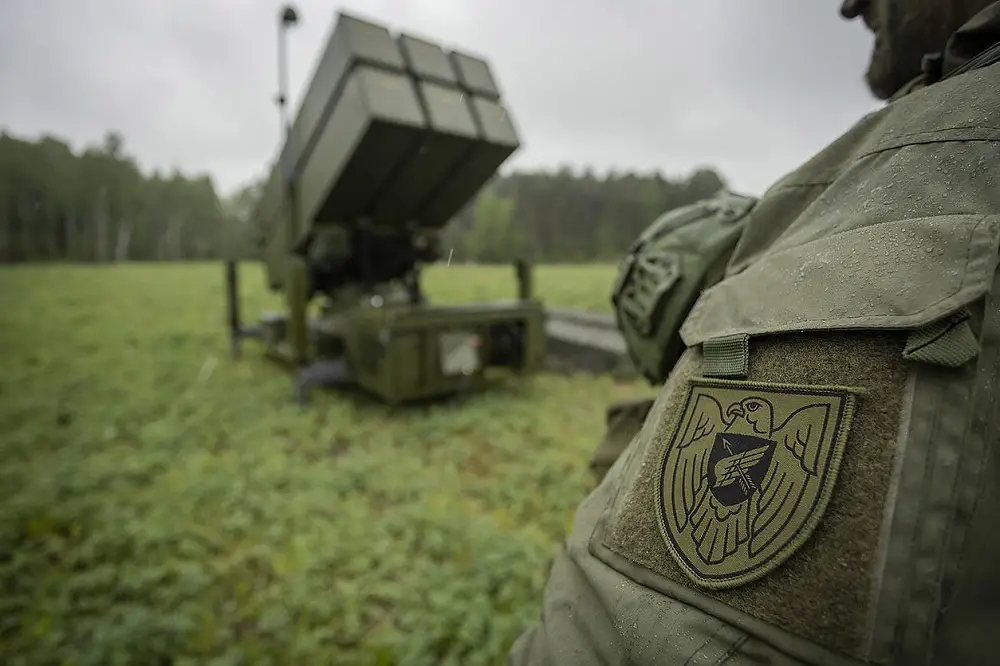The Lithuanian Air Force Air Defence Battalion trains with NASAMS (Norwegian/National Advanced Surface-to-Air Missile System)surface-to-air missile system Surface-to-air Missile System for first time. The international Field Training Exercise Iron Wolf 2023-I has also integrated with the Giraffe Mk IV surveillance radars and RBS-70 short range air defense (SHORAD) missiles. The NASAMS unit is subordinate to the Control and Reporting Centre, CRC, at Exercise Iron Wolf 2023-I and ensures air defence over the Iron Wolf Brigade area of responsibility. 3rd generation NASAMS equipment bought from Norway in 2020 is suitable for neutralization of different types of hostile aircraft, ballistic missiles and unmanned aerial vehicles.
NASAMS is a distributed and networked short- to medium-range:?4? ground-based air defense system developed by Kongsberg and Raytheon. The system defends against unmanned aerial vehicles (UAVs), helicopters, cruise missiles, unmanned combat aerial vehicles (UCAVs), and fixed wing aircraft, firing any of a wide range of existing missiles. NASAMS was the first application of a surface-launched AIM-120 AMRAAM (Advanced Medium Range Air-to-Air Missile). NASAMS 2 is an upgraded version of the system capable of using Link 16, which has been operational since 2007. As of 2022, NASAMS-3 is the latest upgrade; deployed in 2019, it adds capability to fire AIM-9X Sidewinder, IRIS-T SLS and AMRAAM-ER missiles.

In the US, several NASAMS were used to guard air space over Washington, D.C. during the 2005 United States presidential inauguration, and are used to protect air space around the White House. The system comprises several components: fire distribution centre, radar, electro-optical sensor, launcher, radar and launcher command and control nodes. The launcher is a 360 angle-capacity container accommodating six missiles that launches the missile to engage a hostile target. As NASAMS uses existing air-to-air missiles such as the AIM-9 Sidewinder, AMRAAM, and AMRAAM-ER, there may be thousands of older missiles in NATO’s arsenal that can be fired from a NASAMS battery without change. The AIM-9X variant includes an internal cooling system, eliminating the need for launch-rail nitrogen supply required by older variants of the missile.
Lithuania and fellow Baltic states Latvia and Estonia boosted their defence after Moscow’s 2014 annexation of the Crimean peninsula and the incursion of pro-Russian forces into eastern Ukraine. In 2017, Lithuania ordered the NASAMS-3 to improve its own air defense capabilities; two batteries were delivered in 2020. Lithuania is the first foreign customer to take delivery of NASAMS-3. Two NASAMS-3 batteries delivered in 2020, each with four launchers as a part of a $128 million deal. Each battery for Lithuania comprises four launchers mounted on Mercedes-Benz 8×8 trucks, two Raytheon MPQ-64F1 Sentinel 3D radars and several other components mounted on 4×4 Mercedes-Benz Unimog trucks. As of mid-2022, Lithuania is in the process of acquiring more units.













